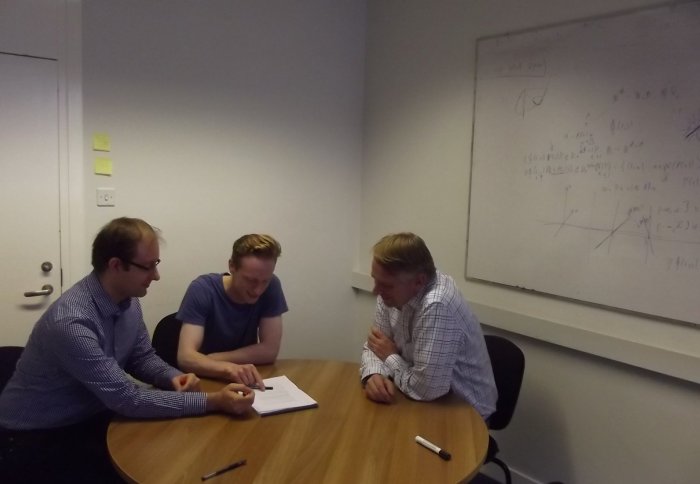Prof Jeroen Lamb and Dr Martin Rasmussen selected for EU ITN Award

Prof Jeroen Lamb & Dr Martin Rasmussen from the Applied Section have been awarded and will co-ordinate a Marie Curie Initial Training Network.
Professor Jeroen Lamb and Dr Martin Rasmussen from the Department of Mathematics have been awarded and will coordinate a Marie Sklodowska-Curie Initial Training Network (ITN) on Critical Transitions in Complex Systems (CRITICS). The network consists of eight universities and one non-academic partner and receives €3,900,000 funding for four years from April 2015 (with €1,250,000 awarded to Imperial College London). The funding offers early-stage researchers the opportunity to improve their research skills, join established research teams and enhance their career prospects.
CRITICS addresses the problem of characterising and predicting the occurrence of sudden changes of behaviour in the dynamics of complex systems in nature, technology and society. Due to increased computer power and capacity for data management, there is a rapidly increasing need to understand and control complex systems. The traditional mathematical theory fails to address these novel challenges in complex systems motivated by ecology, climate science, medicine, technology and financial markets. These challenges involve time-dependent systems, random systems, networks and multiscale systems.
Changes in behaviour are known as bifurcations in the context of very low-dimensional systems (nonlinear dynamics), and as phase transitions in very large systems (equilibrium statistical mechanics). The corresponding phenomena in complex systems are often called critical transitions. The main scientific objective of this project is to develop the bifurcation theory for critical transitions, beyond the classical context, and use this theory to design observables that can be used as early-warning signals.
There is empirical evidence for the existence of early-warning signals, but the mathematical foundation of such observations is largely lacking. The understanding of the nature of critical transitions and their early-warning signals is crucial as a basis for decision-making in many branches of science and technology.
The Innovative Training Network CRITICS will establish a world-leading European research consortium to address the problem of early-warning signals for critical transitions in complex systems in a variety of contexts, providing a unique multidisciplinary training environment for fifteen early-stage researchers. It is envisaged to have a decisive and lasting impact on the field, well beyond the initial duration of the programme.
Article text (excluding photos or graphics) © Imperial College London.
Photos and graphics subject to third party copyright used with permission or © Imperial College London.
Reporter
Claudia Cannon
The Grantham Institute for Climate Change